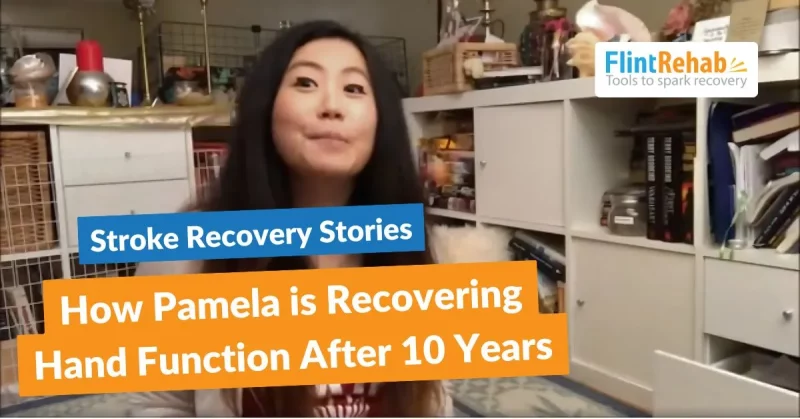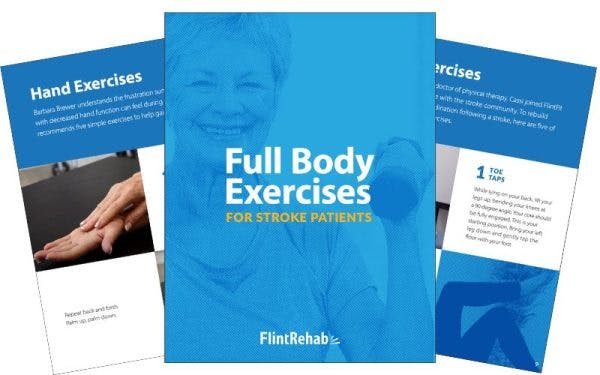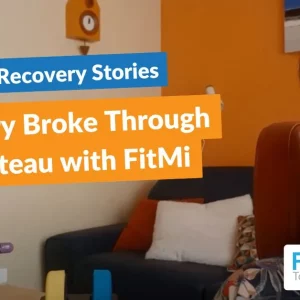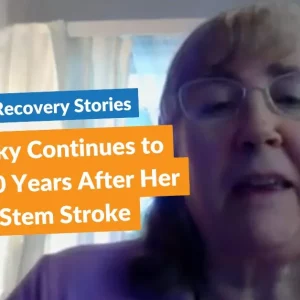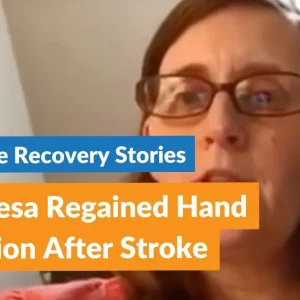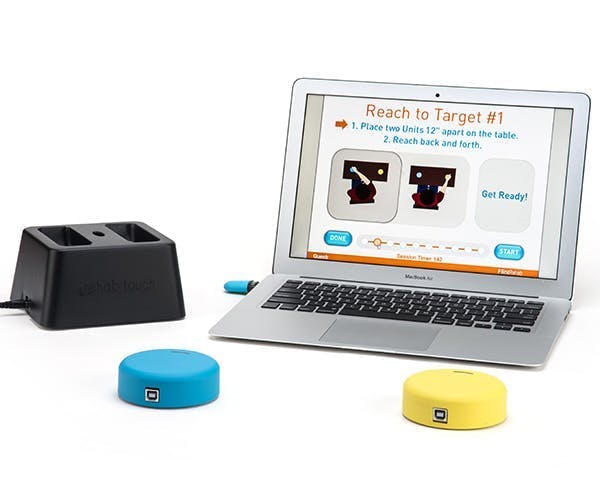Recovering hand function after a stroke or neurological injury can feel like an uphill climb. Progress often slows, motivation fades, and exercises start to feel repetitive. Many survivors, like Pamela, take long breaks from therapy and wonder if it is even worth trying again.
The truth is that improvement is possible, even years later, when you find the right tool.
Pamela’s journey with the Flint Rehab MusicGlove shows how one simple device helped her restart therapy after nearly a decade and finally see meaningful progress.
Rehab After Stroke: Starting Over After Almost 10 Years of Neglect
When a stroke interrupts your life, recovery often feels overwhelming. Pamela experienced this firsthand. For nearly a decade, she had stopped working on her left hand. Her day-to-day routine adapted around her limitations and she managed to keep writing by relying on one strong hand, even as a professional writer!
Still, she couldn’t shake the feeling that her recovery was unfinished. By 2015, she was ready to try again. That was when she discovered MusicGlove, a device that promised a new approach to fine motor rehabilitation.
“It gave me new inspiration to start the super tedious task of fine motor rehab for my hand.”
For Pamela, it was more than just a therapy tool. It gave her the hope and energy she needed to begin again, even after years of putting therapy aside.
Why MusicGlove Was Different for Pamela
Traditional hand therapy exercises can become repetitive. Picking up coins, squeezing stress balls, or practicing finger taps may work, but it is easy to lose interest. And when you lose interest it becomes hard to stay consistent. Pamela knew this was one of her biggest struggles.
The MusicGlove changed that experience. Instead of boring drills, it turned therapy into a game. Wearing a sensorized glove, Pamela tapped her fingers to match notes on a screen, guided by the beat of familiar songs. It’s more like playing a video game or an instrument than doing rehab.
This made all the difference. Instead of forcing herself to complete exercises, Pamela actually looked forward to her sessions. Therapy felt purposeful, and that helped her stick with it which in turn drove results!
Motivation Through Measurable Progress
At the start, Pamela’s accuracy was low. That could have been discouraging, but MusicGlove offered something she had never had before: real-time feedback and progress tracking.
Her friend Anthony explained it simply:
“Numbers don’t lie, Pamela.”
Each session recorded her hit rate and showed clear data on how her performance improved. Seeing her scores rise gave Pamela proof that her effort was paying off. Instead of guessing whether she was getting stronger, she had visible evidence that motivated her to continue.
The Power of Consistency
The key to Pamela’s success was not just the device itself, but her commitment to using it regularly. By practicing several times a week, she gave her brain and hand the repeated input they needed to make progress.
This works because of neuroplasticity, the brain’s natural ability to form new connections when movements are practiced over and over. Even after ten years of little activity, Pamela’s hand responded once she provided the right kind of stimulation through consistent training.
Her story shows that meaningful improvements are still possible, even when recovery feels stalled.
A Friendly Reminder to Other Survivors
Pamela’s experience carries an encouraging message. If you have stopped therapy for a long time, you are not alone. Life gets in the way, progress can feel slow, and motivation can fade. What matters most is giving yourself permission to start again.
With a tool like MusicGlove, therapy does not have to feel like a chore. It can be engaging, rewarding, and easier to stick with. For Pamela, it brought back her sense of possibility. For you, it could be the spark that keeps recovery moving forward.
Final Thoughts
Rehabilitation rarely follows a straight line. There will be setbacks, pauses, and frustrations. What matters is finding ways to stay motivated and consistent. MusicGlove gave Pamela that structure and encouragement, helping her turn effort into real results.
Her story is a reminder that recovery is always worth another try. Stick with it, celebrate small wins, and trust that progress is possible—even if it has been years.
👉 Learn more about MusicGlove for hand therapy and discover how it can help you or a loved one restart recovery today.
Watch the full video to listen to Pamela talk about her experience:
